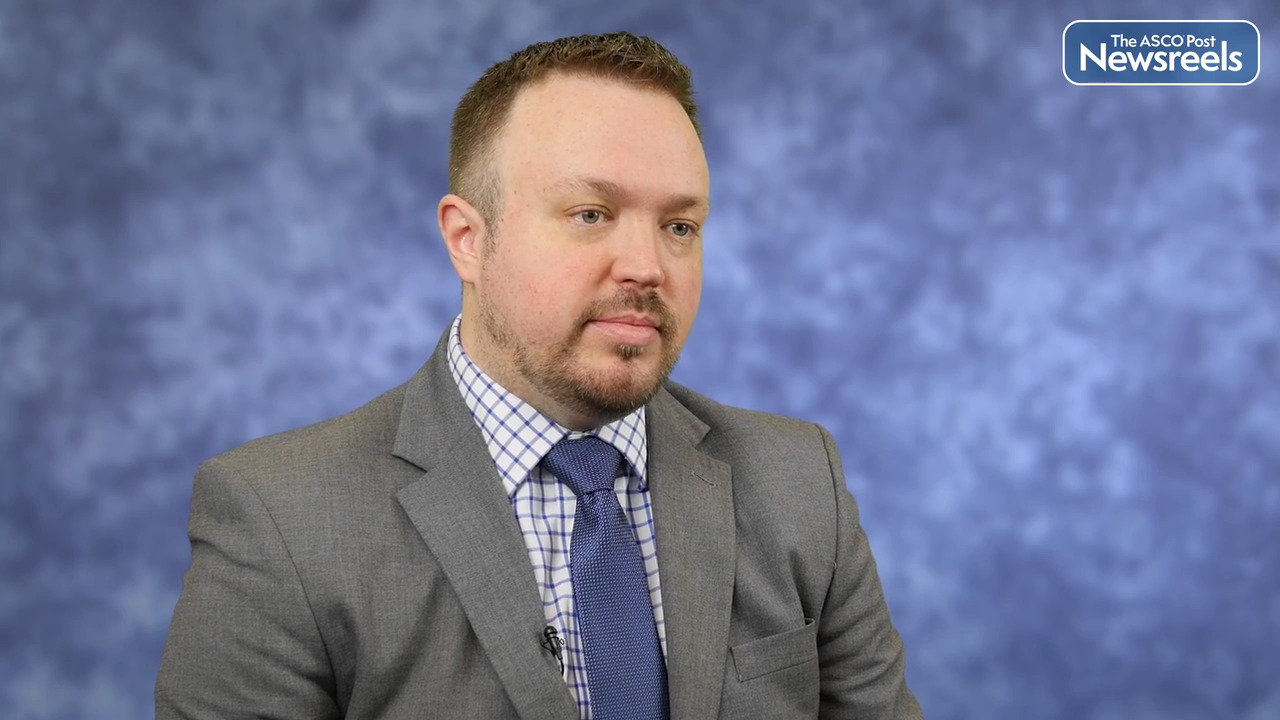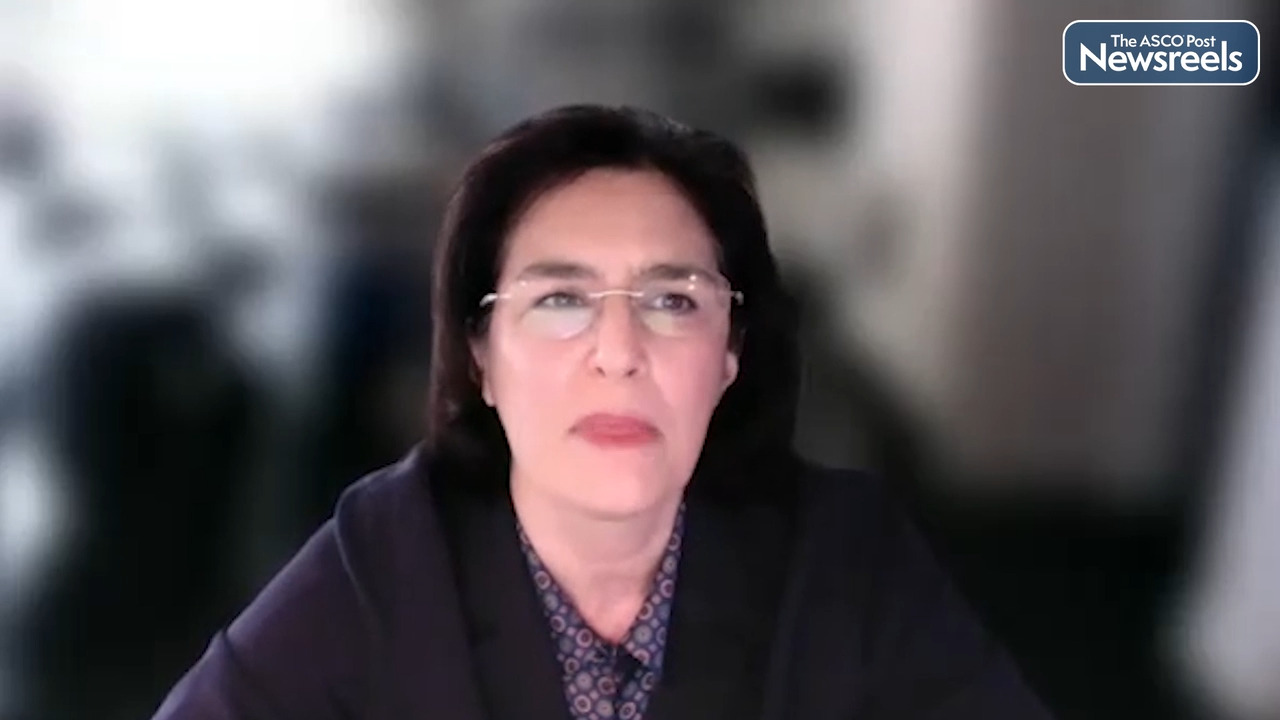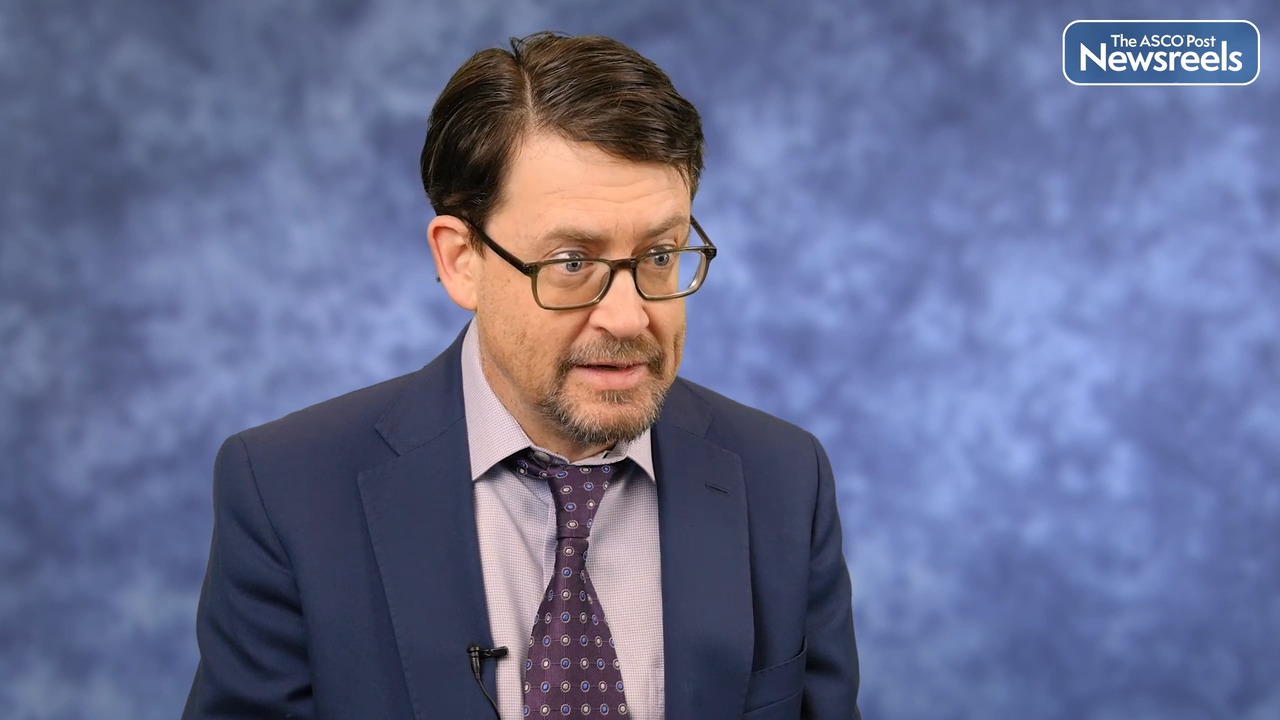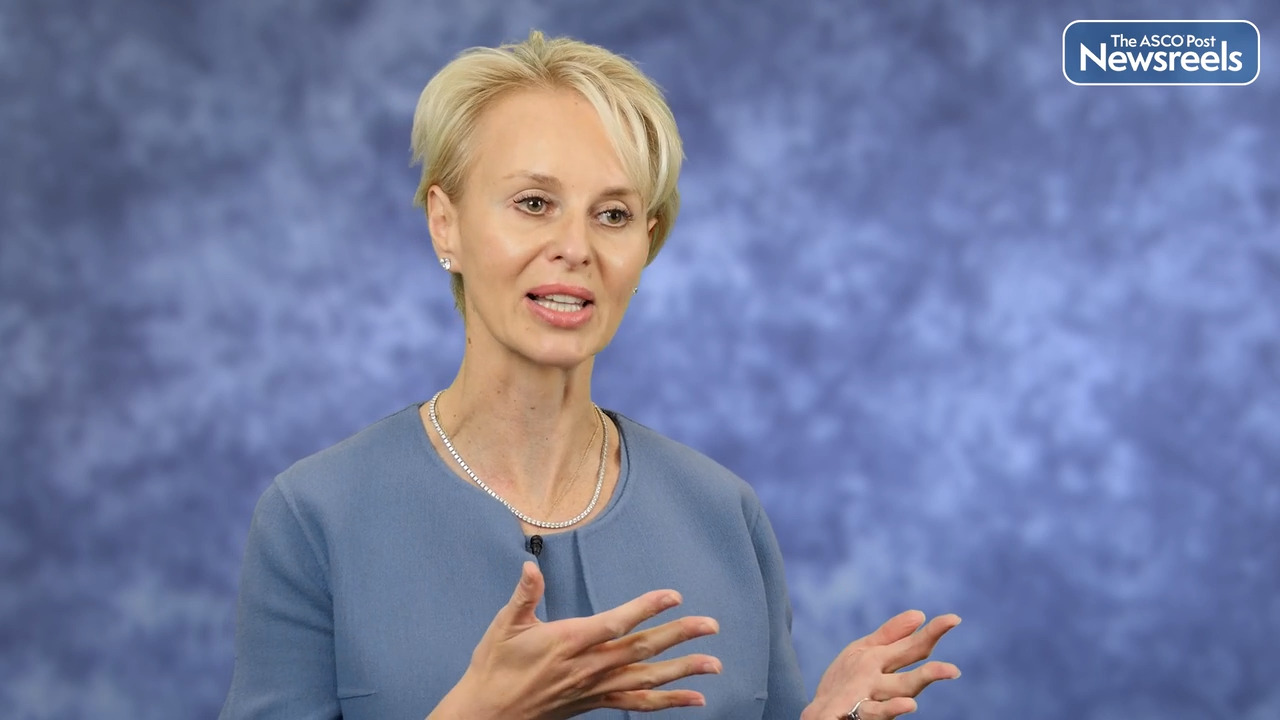Natalie Moryl, MD, on Managing Pain in Patients With Cancer
NCCN 2023 Annual Conference
Natalie Moryl, MD, of Memorial Sloan Kettering Cancer Center, discusses severe cancer pain, a medical emergency that should be addressed with immediate intervention. The treatment plan, Dr. Moryl says, should include making a pain diagnosis; addressing reversible causes of pain such as spinal cord compression, fracture, or obstruction; selecting, titrating, and rotating opioids and co-analgesics; and routine screening for risks of opioid use disorder and mental health comorbidities.
The ASCO Post Staff
Jordan McPherson, PharmD, MS, BCOP, of the Huntsman Cancer Institute at the University of Utah, summarizes a case-based panel discussion on best practices in caring for patients with immune-related adverse events. He focuses on pneumonitis, which can occur with immune checkpoint inhibitor therapy, detailing factors such as comorbidities, infectious etiology, and disease progression; the need to consider myositis and myasthenia gravis in patients who develop immune-related myocarditis; and oral toxicities including mucositis and sicca syndrome.
The ASCO Post Staff
Ella A. Kazerooni, MD, of the University of Michigan Rogel Cancer Center, discusses reducing cancer deaths in the United States by identifying patients at risk for lung cancer. Engaging with primary care physicians and facilitating referrals are keys to a successful lung cancer screening program, she says, as is working with a nurse care coordinator.
The ASCO Post Staff
Michael K. Gibson, MD, PhD, of Vanderbilt-Ingram Cancer Center, discusses the importance of developing additional treatment strategies for patients with advanced or metastatic esophageal squamous cell carcinoma and describes the role of immune checkpoint inhibitors. Dr. Gibson also reviews the available evidence on the use of nivolumab in this patient population.
The ASCO Post Staff
Elena Ratner, MD, MBA, of Yale Cancer Center/Smilow Cancer Hospital, discusses sexuality, intimacy, fertility, and menopause as important aspects of women’s cancer survivorship and the many effects of treatment on these issues. They often go unacknowledged in the medical community, Dr. Ratner says, because of a lack of knowledge and resources. She describes interventions, including holistic, hormonal, behavioral, psychological, and interdisciplinary approaches.
The ASCO Post Staff
Mandi L. Pratt-Chapman, PhD, of the George Washington University Cancer Center, discusses the specific health-care needs for cancer screening, treatment, and survivorship among members of the LGBTQI+ community. Because clinical practices and research studies do not routinely collect sexual orientation and gender identity data, there is insufficient evidence to guide clinical care decision-making, Dr. Pratt-Chapman says.





